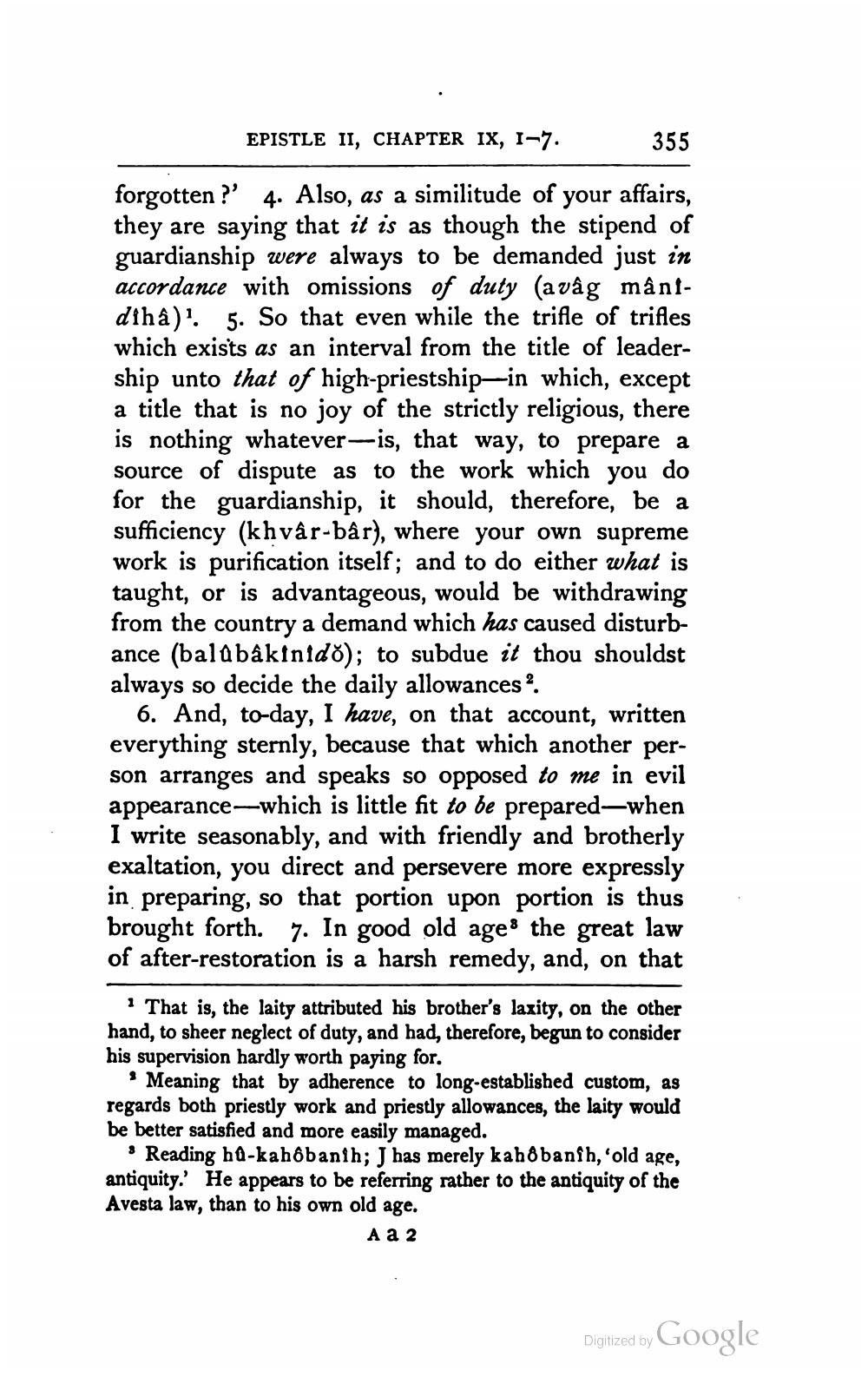________________
EPISTLE II, CHAPTER 1X, 1–7.
355
forgotten?' 4. Also, as a similitude of your affairs, they are saying that it is as though the stipend of guardianship were always to be demanded just in accordance with omissions of duty (a vâg mântdiha). 5. So that even while the trifle of trifles which exists as an interval from the title of leadership unto that of high-priestship-in which, except a title that is no joy of the strictly religious, there is nothing whatever-is, that way, to prepare a source of dispute as to the work which you do for the guardianship, it should, therefore, be a sufficiency (khvâr-bar), where your own supreme work is purification itself; and to do either what is taught, or is advantageous, would be withdrawing from the country a demand which has caused disturbance (bald bakinido); to subdue it thou shouldst always so decide the daily allowances ?.
6. And, to-day, I have, on that account, written everything sternly, because that which another person arranges and speaks so opposed to me in evil appearance—which is little fit to be prepared—when I write seasonably, and with friendly and brotherly exaltation, you direct and persevere more expressly in preparing, so that portion upon portion is thus brought forth. 7. In good old age the great law of after-restoration is a harsh remedy, and, on that
That is, the laity attributed his brother's laxity, on the other hand, to sheer neglect of duty, and had, therefore, begun to consider his supervision hardly worth paying for.
· Meaning that by adherence to long-established custom, as regards both priestly work and priestly allowances, the laity would be better satisfied and more easily managed.
* Reading hQ-kahobanih; J has merely k ahobanih, old age, antiquity.' He appears to be referring rather to the antiquity of the Avesta law, than to his own old age.
Аа2
Digitized by Google




